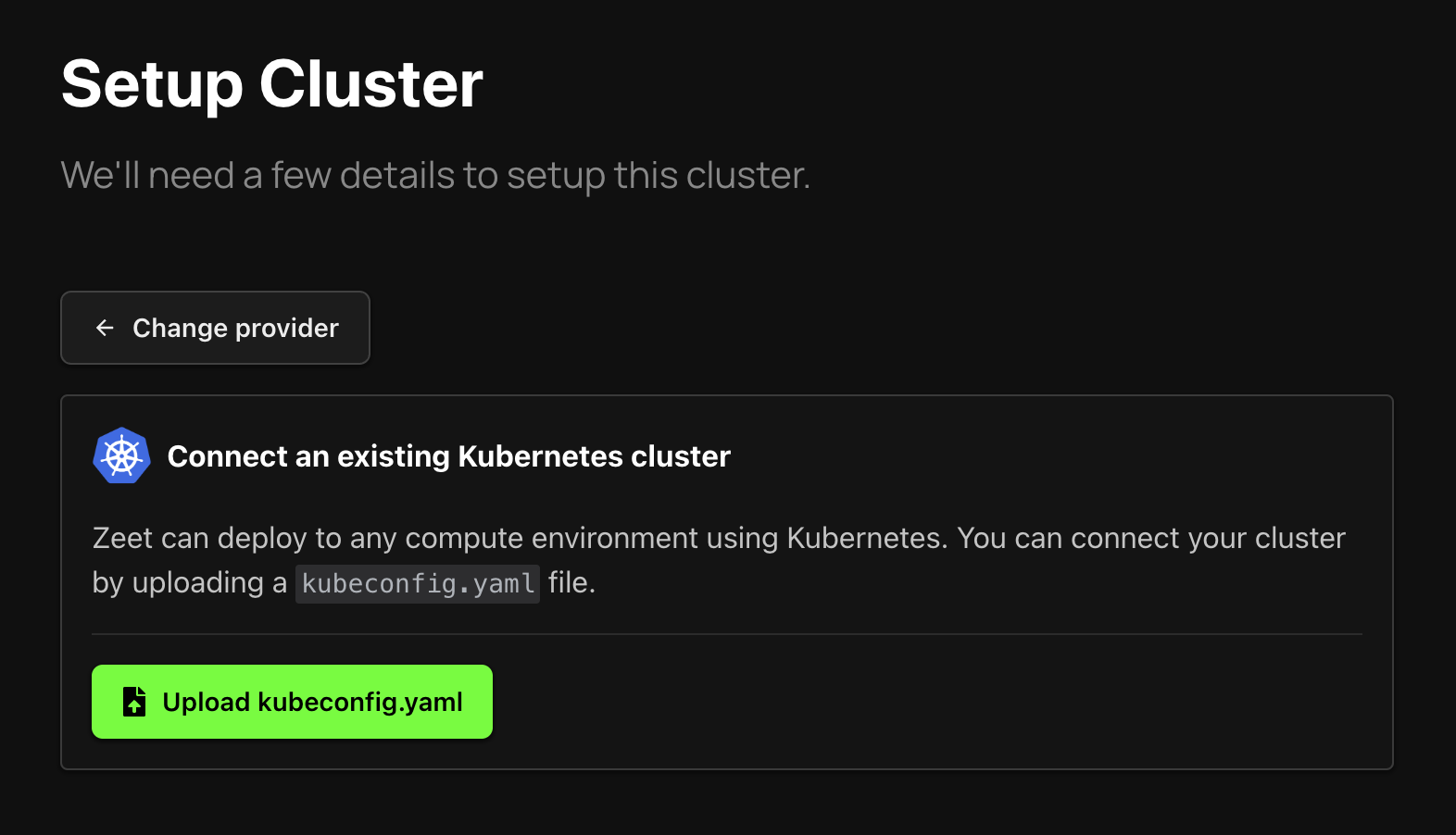Linode Kubernetes Engine (LKE) Integration Guide with Zeet
This guide details the process of integrating Linode Kubernetes Engine (LKE) with Zeet. It includes the steps to install necessary cluster components and how to connect your LKE cluster with the Zeet platform.
1. Installing Cluster Components
To integrate LKE with Zeet, you'll need to set up several components that enhance the functionality and manageability of your Kubernetes cluster.
Cluster Components Manifests
Access all necessary files and templates in our GitHub repository: zeet-dev/zeet-cloud-linode. This repository contains Terraform scripts and Kubernetes configurations required for the integration.
Parameters Needed
The following parameters are essential for the setup:
- LINODE_TOKEN: Your Linode API token.
- CLUSTER_NAME: The name of your LKE cluster.
- CLUSTER_REGION: The Linode region where your cluster is hosted.
- CLUSTER_DOMAIN: The domain name associated with your Kubernetes cluster.
These parameters play a vital role in configuring your cluster components correctly.
2. Connecting Your Cloud Account with Zeet (Optional)
After the cluster components are set up, you might want to connect your Linode account with Zeet. This step enables Zeet to access your Linode resources.
Note: This is an optional step, only necessary if you want Zeet to interact with your Linode account. If you're only managing resources within your LKE cluster, you can skip this step.
For more details, refer to Zeet Linode Integration Documentation.
3. Connecting Your LKE Cluster with Zeet
Create a Service Account for Zeet with Cluster Access
A service account with role binding is needed for Zeet to manage your LKE cluster. Create a service account using this manifest:
Here's a guide on creating a kubeconfig file from a service account: Creating kubectl config file for service account.
Connect Your Cluster with Zeet
Go to Zeet's cluster connection page to link your LKE cluster: Connect Cluster.

Upload the Kubeconfig File
